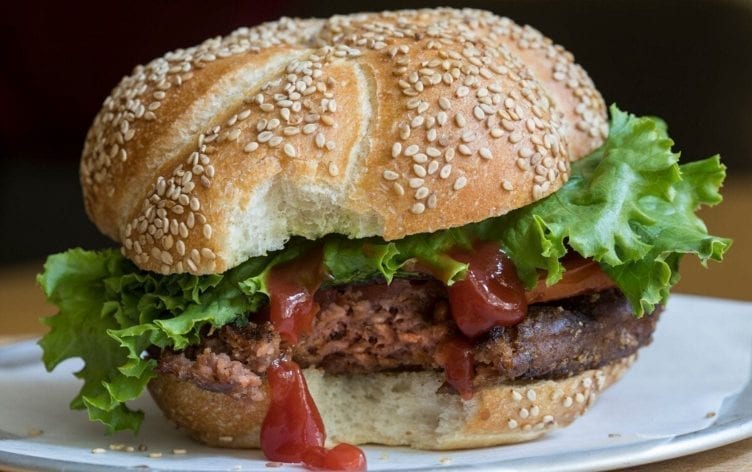Gone are the days when eating burgers and meatballs was reserved exclusively for meat-eaters. The same goes for visiting your favorite taco joint or fast-food chicken restaurant. As plant-based meat substitutes from companies like Beyond Meat andImpossible Foodshit the mainstream, it’s becoming easier for vegetarians and vegans to eat foods typically consumed by carnivores.
Meat alternatives aren’t exactly new. Veggie burgers have been on restaurant menus and populating in-store freezers for decades. But this new wave of meatless “meat” takes the category a step further by promising to look, taste and even bleed like the real thing. Naturally, that brings up a few questions.
IS ALTERNATIVE MEAT HEALTHY?
“For those that want or喜欢基于植物的饮食模式, meat alternatives can provide a way to enjoy a ‘burger’ or similar foods,” saysAmy Goodson, MS, RD. “However, to think that you are eating a healthier option might be a false assumption.”
She notes that beef is a whole food that provides 10 essential nutrients, including protein, iron and B vitamins, while many alternative meats contain高度处理15个成分的高度处理,并含有更少的营养。替代肉通常会赢得卡路里的战斗,但由于包含椰子油等成分,它的脂肪与典型汉堡大约相同。实际上,与瘦红肉相比,它实际上含有更多的脂肪,饱和脂肪和钠。
Another surprising take-away from the new wave of alternative meats is that, while they contain ingredients like pea, mung bean and rice proteins, they do not contain actual vegetables. That means they do not count toward your 5–7 recommended servings per day.
“Options likeblack bean burgers, or those made with more vegetables and beans, might be a more nutrient-rich option,” says Goodson.
HOW DOES THE PROTEIN STACK UP?
While plant-based eating can certainly be beneficial to people and to the environment, it’s also important to realize thatnot all protein is the same. So, if you choose to obtain the majority of your protein from plants, you may need to be more strategic in your eating.
“The amino acids from plant proteins (with the exception of soy), aren’t as bioavailable as meat,” saysTaylor Sutton, a registered dietitian. This means your body cannot absorb and use the protein as efficiently.
READ MORE:What Exactly Is Meat-Lite Eating?
IS THERE A BETTER WAY TO EAT LESS MEAT
“如果有人想reduce their meat consumption, we look at their lifestyle and what their main goals are,” says Sutton. Taking something away from your diet, like meat, means you’ll need to add back nutrients from protein and fat via another route. Sutton suggests choosing nutrient-dense vegetables and high-quality fats likenuts, seeds and牛油果.
While alternative meats can absolutely be part of a healthy diet, they’re not a magic pill — and, as with all things, they should be consumed in moderation. When in doubt, opting for less-processed food is always a smart choice.
“If you want to eat a more plant-based diet, eat more plants,” says Goodson. Fruits, vegetables, whole grains, beans, lentils, nuts, seeds — they’re all good.

